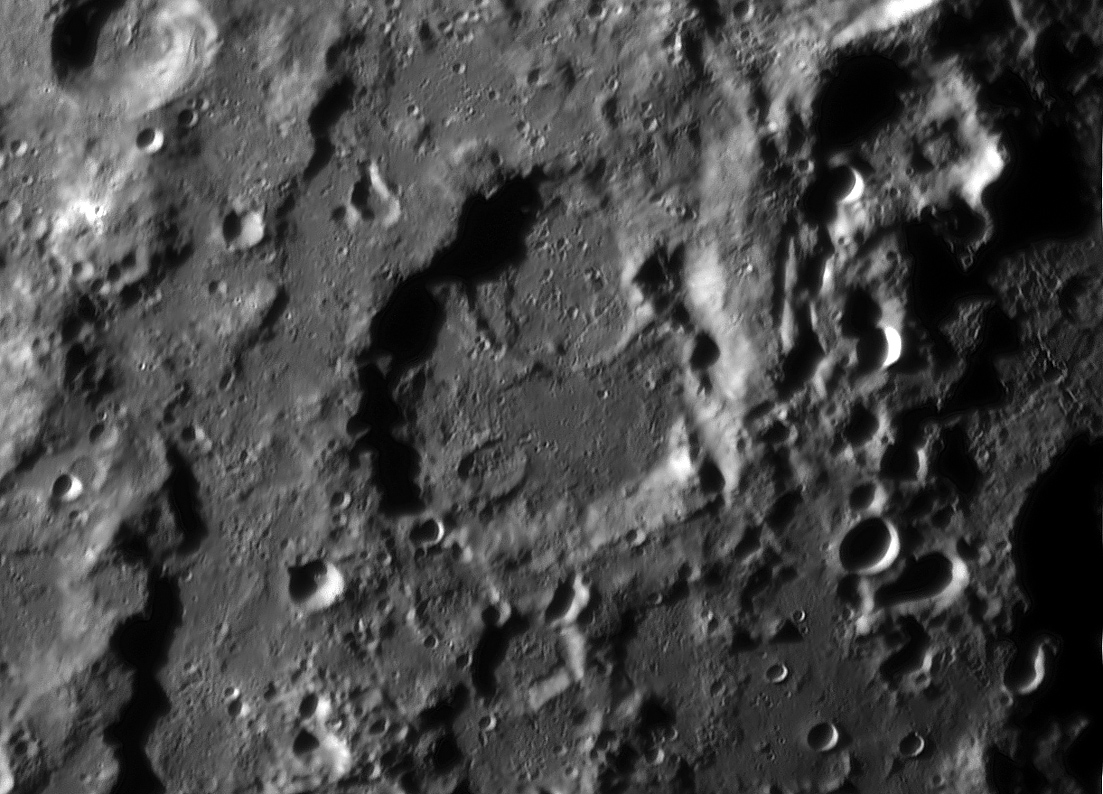Catharina
Contents
Catharina
|
Lat: 18.1°S, Long: 23.4°E, Diam: 104 km, Depth: 3.13 km, Rükl: 57 |
Images
LPOD Photo Gallery Lunar Orbiter Images Apollo Images
- Catharina was also captured on several frames made by the southward looking mapping/metric Fairchild camera of Apollo 16, of which frame AS16-M-0694 shows Catharina near the central part of the depicted curved horizon.
- Research: Danny Caes.
Maps
(LAC zone 96B1) LAC map Geologic map
Description
Description: Elger
(IAU Directions) CATHERINA.--The largest of the three great formations: a ring-plain with a very irregular outline, extending more than 70 miles in a meridional direction, and of still greater width. The wall is comparatively narrow and low on the N.W. (8,000 feet above the floor), but on the N.E. it rises to more than double this height, and is broken by some large depressions. The inner slope on the S.W. is very gentle, and includes two bright craters, but exhibits only slight indications of terraces. The most remarkable features on an otherwise even interior are the large low narrow ring (with a crater within it), occupying fully a third of the area of the floor, and a large ring-plain on the S. side.
Description: Wikipedia
Additional Information
Depth data from Kurt Fisher database
- Westfall, 2000: 3.13 km
- Viscardy, 1985: 3.13 km
- Cherrington, 1969: 2.8 km
- Central peak height
- Sekiguchi, 1972: 0.8 km "The central peak is superposed by the wall of Catharina P." - fatastronomer
Nomenclature
- St. Catherine of Alexandria (unkn-c. 307) was a Greek theologian and philosopher. She is a Christian saint and martyr claimed to have been a noted scholar in the early 4th century.
- List of features named for women.
LPOD Articles
A Classic Trio
Sunrise on a Familiar Threesome
Linears
Lunar 100
L8: "Theophilus, Cyrillus, Catharina", Crater sequence illustrating stages of degradation.
Bibliography
Wood, C.A. Nov. 2004. Ghost Craters and Lava Lakes S&T 11/2004:63
